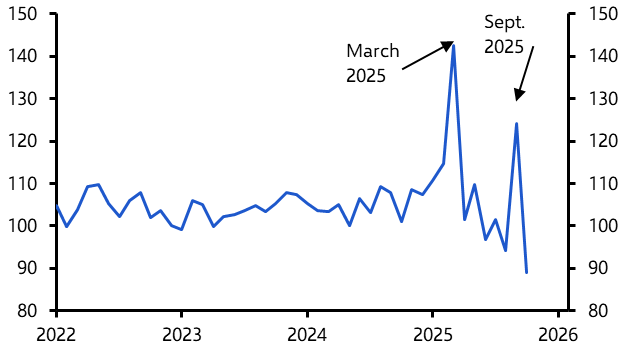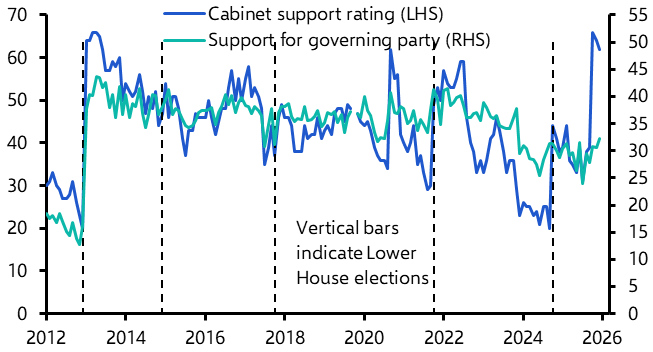One of the questions we’ve been asked a lot in recent client meetings surrounds the complex interaction between government policy and economic growth. Elections are due in the UK next month and the US next year and in both cases insurgent candidates on the left are promising a radical departure from the liberal orthodoxy that has dominated the past several decades of policymaking in advanced economies. They vow to dismantle a “rigged” system and expand the role of the state. Meanwhile, markets fear that an assault on capitalism and a new era of big government will curtail growth. The reality is more complicated.
One of the points to stress from the start is that the campaign pledges of hard left candidates have often been diluted once in government. This is sometimes because an adverse market reaction has triggered a policy rethink (as was the case under President Mitterrand in France in the early 1980s) or because coalition partners have forced left-wing leaders to drop some of the more radical aspects of their agenda (as was the case in New Zealand in 2017).
More fundamentally, it’s important to distinguish between the effects of left-wing policies on growth in the short-term (through demand) and the effects on growth in the longer term (through the impact on the economy’s supply potential).
In the short term, a shift to the left would typically be associated with a loosening of fiscal policy. And while the form of any fiscal expansion matters, in most cases this should boost demand and thus near-term growth. Of course, this is likely to be at least partly offset by the adverse effect of weaker business confidence on corporate investment. But it’s difficult to make the case that overall GDP growth would collapse in the immediate aftermath of a left-wing shift.
Looking beyond the next year or so, there is not much evidence linking the size of the state to long-run growth performance in the developed world. (See Chart 1.) Government spending as a share of GDP in Sweden is substantially higher than in the US, Germany and UK, but incomes there have grown at a faster pace than in the other three economies.
Chart 1: GDP Per Capita Growth and Government Spending as Share of GDP

The post-war experience of the UK is instructive in this regard. It’s possible to split the past 60-70 years of UK economic history into three periods. The first covers the 1950s and 60s, in which the post-war Keynesian consensus dominated and the government was a relatively large part of the economy. The second covers the 1970s, in which oil shocks pushed up inflation and government continued to play a relatively large role in the economy. And the third covers the period since the 1980s, in which the economy was deregulated and the government stepped back.
Yet as Chart 2 shows, despite these radically different policy regimes, there has been no obvious shift in per capita GDP growth. The big hit to income growth resulted from recessions (particularly in the early 1980s and in 2008) rather than from a shift in government policy.
Chart 2: UK GDP Per Capita (% y/y)

None of this is to say that policy doesn’t matter at all for economic growth. But over the long term, economic growth is shaped more by a complex set of issues around institutions and technology rather than the relatively narrow one of tax and government spending. A shift to the left would hit equity markets, with policies such as higher minimum wages and - in particular - corporate taxes likely to hit earnings growth. But the feedback loops to the real economy are smaller than is often assumed.
The bottom line, then, is that unless the key pillars of the market economy are fundamentally dismantled, the impact on overall economic growth of a leftward shift in policy is in practice likely to be overwhelmed by other factors. The same is often true, incidentally, of right-leaning governments. The outcome of elections will be a key driver of market fortunes over the next year or so, but when it comes to the real economy politicians overstate their ability to transform the growth outlook.
In case you missed it:
- Our Senior Europe Economist, Jack Allen-Reynolds, assesses the likelihood of a fiscal loosening in the euro-zone next year.
- Our Senior Europe Economist, David Oxley, looks at how the Riksbank is planning for life after cash in Sweden and what it means for the economy and for policy.
- Our new “Key Themes” pages have been hugely popular and we’ll be adding more in the coming weeks. You can view our Globalisation page here and Brexit page here.



